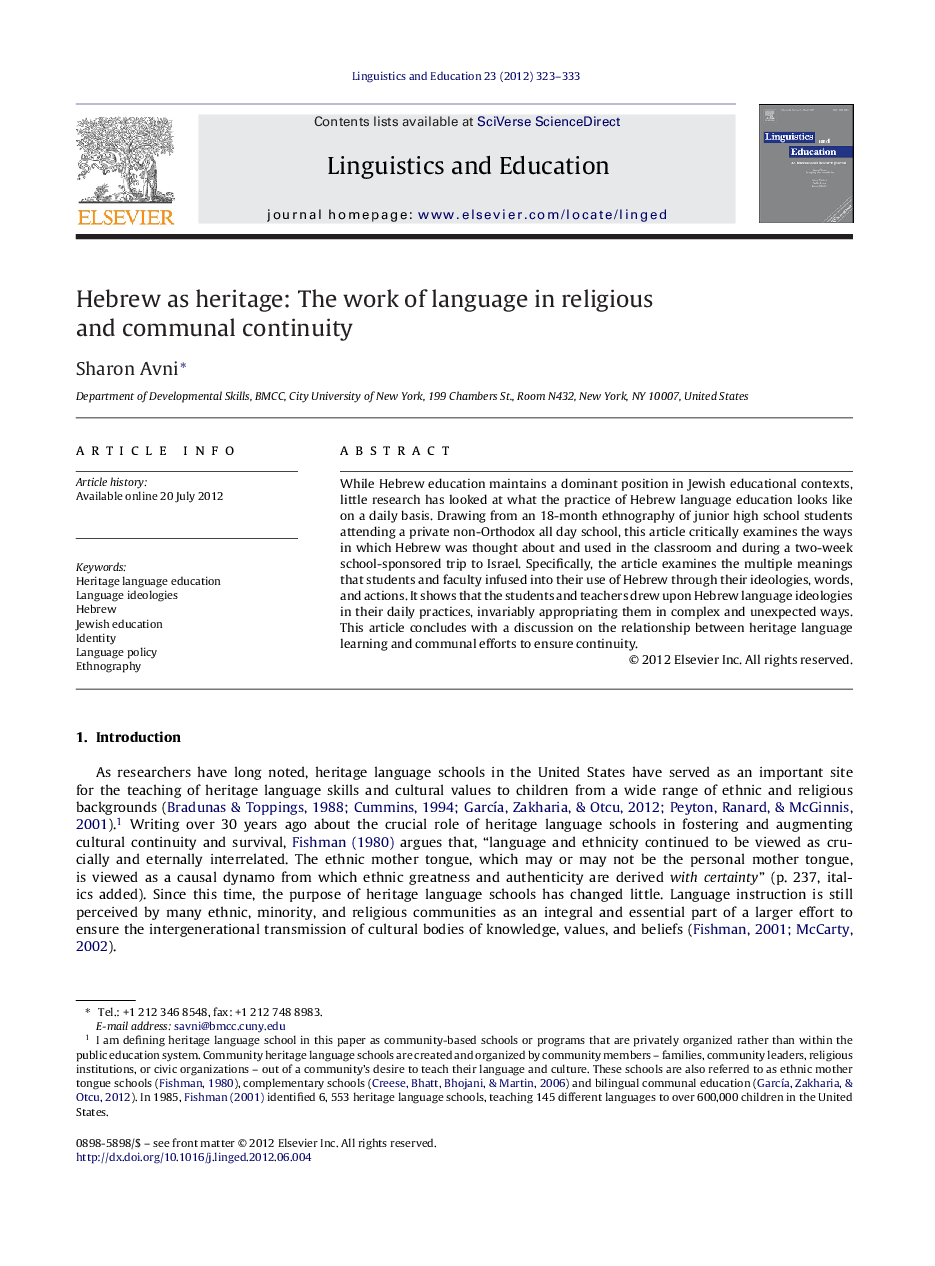| Article ID | Journal | Published Year | Pages | File Type |
|---|---|---|---|---|
| 366293 | Linguistics and Education | 2012 | 11 Pages |
While Hebrew education maintains a dominant position in Jewish educational contexts, little research has looked at what the practice of Hebrew language education looks like on a daily basis. Drawing from an 18-month ethnography of junior high school students attending a private non-Orthodox all day school, this article critically examines the ways in which Hebrew was thought about and used in the classroom and during a two-week school-sponsored trip to Israel. Specifically, the article examines the multiple meanings that students and faculty infused into their use of Hebrew through their ideologies, words, and actions. It shows that the students and teachers drew upon Hebrew language ideologies in their daily practices, invariably appropriating them in complex and unexpected ways. This article concludes with a discussion on the relationship between heritage language learning and communal efforts to ensure continuity.
► This paper provides an ethnographic analysis of the teaching of Hebrew in non-Orthodox Jewish day school education. ► It demonstrates that Hebrew created a learning context in which Jewishness and communal boundaries were created, reified, and challenged. ► It shows that Hebrew was paradoxically absent in some activities stressing Jewish identity, and its use was not always indexical of Jewishness. ► It argues for a critical reconsideration of the role of heritage language education in communal continuity efforts.
